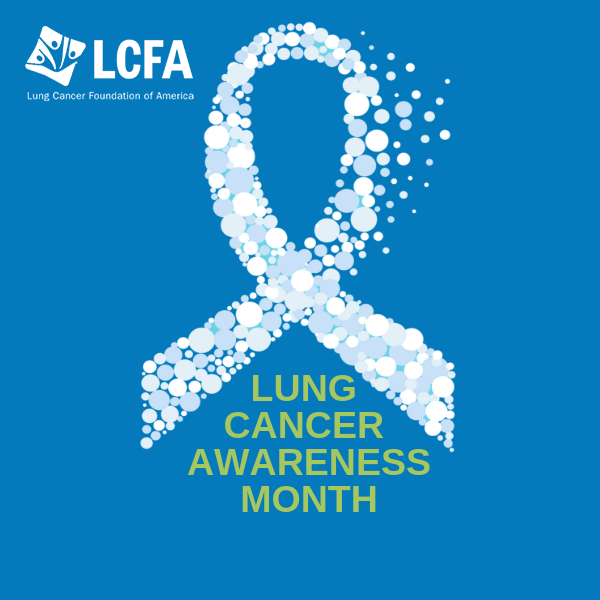
Lung Cancer and Addiction | November is Lung Cancer Awareness Month
The month of November has been designated as a time to raise awareness about lung cancer, including ways to prevent it and methods for treating it. Lung Cancer Awareness Month includes a number of activities designed to inform those who may be at risk, including people who are addicted to smoking. Addictions to other drugs and alcohol can also have an impact as research has found a connection between lung cancer and addiction.
Lung Cancer Awareness
According to the American Lung Association, if lung cancer is caught before it spreads, the likelihood of survival triples. Screening is estimated to reduce lung cancer mortality by up to 20 percent. In fact, if only half of those at high risk were screened, more than 13,000 lung cancer deaths would be prevented. Screening and early detection has been proven to save lives.
The CDC has found that lung cancer is the leading cause of cancer death and the second most common cancer among both men and women in the United States. Each year, about 221,000 people in the United States are told they have lung cancer and about 146,000 people die from this disease. Different people have different symptoms for lung cancer. Most people with lung cancer don’t have symptoms until the cancer is advanced.
There are a number of factors that may cause lung cancer. Nearly 9 out of 10 lung cancers are caused by smoking cigarettes. Treatments are getting better for lung cancer, but it still kills more men and women than any other type of cancer. Nonsmokers who are exposed to secondhand smoke at home or at work increase their risk of getting lung cancer by 20% to 30%. Radon is thought to be the second leading cause of lung cancer in the United States, responsible for more than 20,000 lung cancer deaths each year.
Lung Cancer and Addiction
While a cigarette smoking addiction is a significant factor in lung cancer, addiction to other types of smoking as well as to other drugs can impact a person’s chances of getting lung cancer and can affect the ability to recover from the disease. In particular, these substances can have a serious negative effect on the lungs’ functions, which can complicate the smoker’s health.
For example, researchers have found that marijuana smoke can cause respiratory problems, including chronic bronchitis. Smoking crack cocaine can cause lung damage and severe respiratory problems. The use of some drugs, such as opioids, may cause breathing to slow, block air from entering the lungs, or make asthma symptoms worse. Drugs that can affect the respiratory system include heroin, inhalants, ketamine, and PCP.
Addiction accounts for approximately 30 percent of all cancer deaths, including about 80 percent of all lung cancer deaths. The chronic and consistent use of illicit drugs can increase cancer risk, especially when mixed with drugs for which there is a clear carcinogenic potential, including alcohol.
A recent study determined that heavy alcohol consumption may be linked to a greater risk of developing lung cancer. Stanton Siu, MD, FCCP, and a team of researchers studied 126,293 people who provided baseline data from 1978 to 1985 and then followed them until 2008 to determine their risk for developing lung cancer in relation to cigarette smoking, alcohol consumption, gender, ethnicity, BMI, and level of education. Of the 1,852 people who developed lung cancer during this time, results showed that cigarette smoking remained a strong predictor of all types of lung cancer; however, heavy alcohol consumption (more than 3 alcoholic drinks per day) also increased lung cancer risk, with a slightly higher risk related to heavy beer consumption as opposed to wine and liquor.
Treatment Considerations
For someone addicted to drugs such as opioids, lung cancer treatment may pose some complications that will need to be addressed. Primarily, the use of opioids in any setting increases the risk of misuse and addiction, so it is important to balance this risk with the potential benefits for treating cancer related pain. Lung Cancer Awareness Month is a good time to investigate the possibilities for assessing and treating lung cancer as well as addiction to drugs or alcohol.
Contact Recovery Without Walls for Safe, Effective Addiction Treatment
At Recovery Without Walls, we offer you the most advanced treatment options available. Our team will work with you on your individual needs, providing the best of the alternative healing modalities proven effective in promoting comprehensive health and your continuing recovery. During COVID-19, our providers continue to work to help you through treatment and recovery, focusing on evidence-informed research, exceptional psychotherapy, and integrative healing methods. We encourage you to email or call us for care and for answers to your questions. Contact us today to learn more about getting help.

